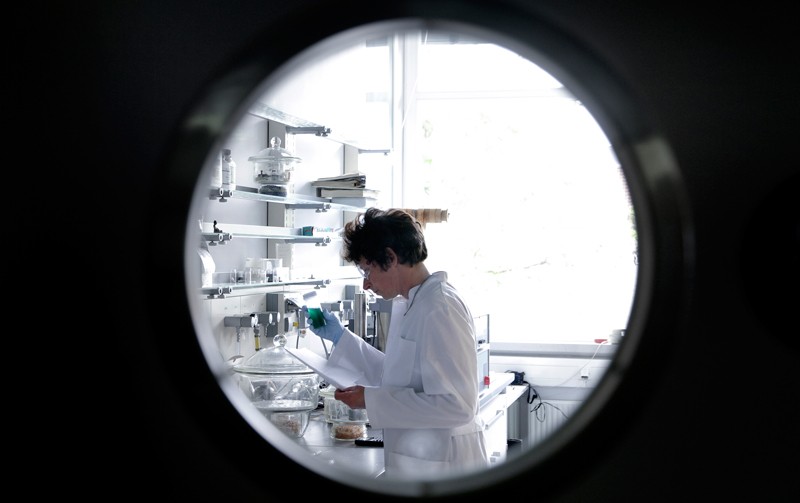(원문)
A decade on from a major academic scandal, officials there have got their act together.
Austria has made great progress on handling allegations of bad behaviour in the lab.Credit: Getty
Many countries are trying to clamp down on scientific misconduct. Last week, the UK government promised to look into setting up an independent body to oversee institutional investigations into research misconduct, and the Netherlands has revamped its research-integrity code. Last month, India said it would crack down on widespread academic plagiarism. And earlier this year, Chinese officials pledged to get tough on academic fraud with new laws that include a dedicated government agency to police misconduct.
The problem is that much of this renewed political attention is not translating into meaningful action. High-profile cases of exposed malpractice continue to pile up, and surveys of researchers regularly confirm that poor behaviour is shockingly more common than many who promote the values of science might want to accept.
So it is promising to report from a meeting in Vienna last week that was held to celebrate ten years of the Austrian Agency for Research Integrity. The organization is not perfect, but it has much to be proud of. Its work shows what can be achieved given the requisite political will. And it reveals some of the problems that remain, in Austria and elsewhere. Officials in countries that are looking for ways to tackle misconduct should pay close attention.
Lesson one: act quickly and decisively. The agency was born out of a scandal that rocked Austrian science to its core. In 2008, the Austrian Agency for Health and Food Safety deemed a clinical trial of an experimental therapy for urinary incontinence to be illegal and invalid. The trial, led by Hannes Strasser at the Medical University of Innsbruck, was conducted without appropriate approvals, and did not adequately inform or protect patients. But the university initially failed to investigate.
At the time, an Editorial in Nature lamented the sorry state of Austrian science, which was riddled with rigid hierarchies that deterred many from raising complaints and concerns (Nature 454, 917–918; 2008). The article called for the nation to speed up the creation of an independent body to investigate cases of academic fraud, which it had been planning and discussing for some time.
It did so. Since June 2009, the agency has handled 144 allegations of research fraud, and confirmed 40 cases. Of the rest, 12 are ongoing. In 31 cases, it was not possible to determine whether misconduct had occurred, and for a further 37 the allegations were not within the remit of the agency (for the most part, these revolved around labour disputes). The remaining 24 were either not followed up or were investigated by the university in question.
Lesson two: institutions have nothing to fear. The Vienna agency offered a confidential route for research scientists to report concerns, but required institutions to buy in to the agency by becoming members. Initially, many universities were reluctant to sign up, fearing their reputations could be ruined if they were found to be harbouring fraudsters. But the ministry of higher education linked membership to funding, which quickly persuaded them to change their minds. All of the country’s 22 public universities have now signed up. Sanctions against researchers found to have committed misconduct are left to the universities. According to the agency, these include sackings and retractions.
Lesson three: one size cannot fit all. Any investigatory system must consider unique aspects of a country’s research system. The Austrian agency, for example, uses scientists working outside the country to assess the complaints. This is crucial for protecting the process from undue influence from strong local networks and loyalties within the small nation’s academic research community of fewer than 20,000 people.
Lesson four: wider legal reforms are necessary to properly address cases of fraud. Much behaviour that science frowns on is not explicitly against the law, and findings of misconduct and associated penalties can themselves be challenged in court. In 2012, the Austrian agency concluded that protein crystallographer Robert Schwarzenbacher had faked the structure of a birch-pollen allergen. Schwarzenbacher lost his job at the University of Salzburg, but later sued the institution for unfair dismissal. The case was settled out of court. In 2011, an employment tribunal ordered that Hannes Strasser be readmitted to a teaching post at the Medical University of Innsbruck. (He lost that post in 2014 when a final criminal-court ruling sentenced him to jail for aggravated libel related to the case.)
The legal status of scientific fraud is a thorny issue — and one hotly debated. But Sweden, following Denmark, is already working to define research misconduct in law so that there are clear lines in place. Laws against misconduct would also compel more institutions, such as those that are privately funded, to act transparently.
Research misconduct is moving higher up the political agenda. And for countries that are in the process of creating systems, revamping old ones or assessing their achievements, Austria offers a good example to follow. Institutions that continue to drag their feet on the problem should take careful note, too.
Nature 561, 285-286 (2018)
